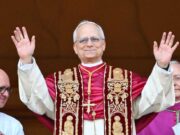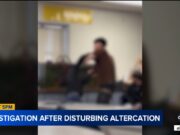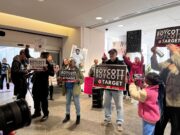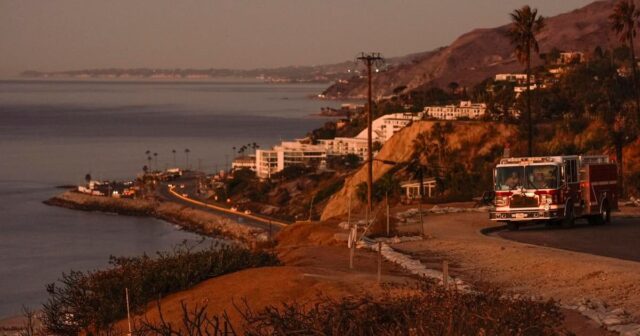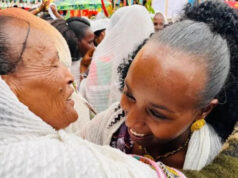
Watch CBS News
“What’s happened in a number of recent Olympics is something else comes along that entirely changes what the Games are all about,” said Dr. Matthew Brown, a University of Utah political science professor who has written extensively about the Olympics.
Tokyo postponed the 2020 Summer Games until 2021 because of the COVID-19 pandemic and then held them without fans in attendance. Beijing went ahead with the 2022 Winter Games under strict pandemic restrictions with limited spectators allowed.
“Something like wildfires can really change the priorities of lots of cities in that region and potentially the state and federal government and what they fund and when they want to fund it,” Brown said.
LA28 president and chairman Casey Wasserman met with President-elect Donald Trump in Florida on Wednesday night to shore up backing.
“As a lifelong Angeleno, I shared our sentiments for President-elect Trump’s continued support in Los Angeles amid the devastation in our region,” Wasserman said in a statement.
Trump, a major sports fan, was serving his first term when Los Angeles won the Games.
“We also addressed the 2028 Games, and we are grateful for his unwavering commitment to LA28 and his leadership in bringing the Summer Games back to the United States for the first time in more than 30 years. We look forward to partnering with him and his administration to deliver a safe and successful Games our nation can be proud of,” Wasserman said.

The strain on resources in Los Angeles
Los Angeles is not immune to disasters — real or imagined. Wildfires, earthquakes, mudslides, flooding, drought and rioting have left their marks on the nation’s most populous county of nearly 10 million people. And on the screen, Hollywood has dreamed up mass destruction.
The ongoing wildfires have killed over 20 people, destroyed over 12,000 structures and fouled the sprawling region’s air quality, which affects public health.
“The reality is what this is going to do is put a big strain on availability of resources from the city of LA, surrounding cities and the state of California,” Brown said.
“What happens then is those resources have to come from somewhere and that means other things are not going to have resources.”
Brown points out that while the Olympics are primarily funded through the local organizing committee, Games held in the U.S. depend heavily on state and local governments for police, fire, first responders and traffic control.
“Those are all local resources,” he said. “They’re not going to be controlled by the local organizing committee.”
It’s unclear how the recovery could impact LA’s notorious traffic congestion. Mayor Karen Bass has promised a “car free” Olympics, but no detailed transportation plans have been announced for the Games, which are expected to attract thousands of people daily.
The region’s ability to recover will be tested as it prepares to host the World Cup, Super Bowl and the 17-day Olympics followed by the Paralympics in a span of three years.
“We have seen a tremendous response to this devastating tragedy by our partners at every level of government, working in unity,” Kerkorian said. “With that continuing spirit of cooperation, we have no doubt that Los Angeles will be ready to welcome the world next year for the FIFA World Cup and in 2028 for the Olympic and Paralympic Games.”
Given its proximity to Hollywood, few would be surprised to see the city create a comeback story worthy of the big screen.
“The advantage LA has is there’s always another place to do whatever it is you wanted to do,” Brown said. “That gives it something other cities couldn’t pull off.”







